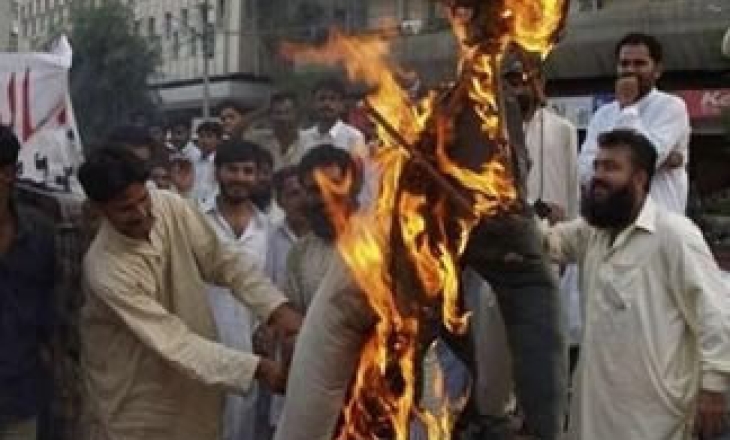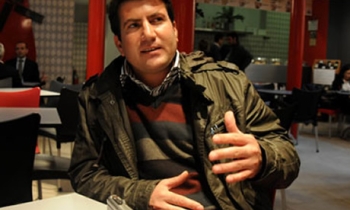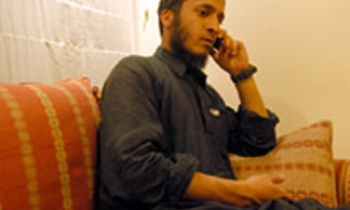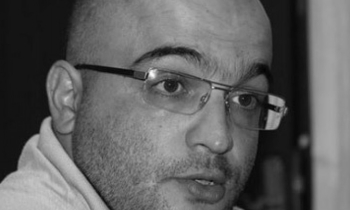Three years on, the Danish cartoon wars just won't rub out. Governments are stoking the crisis by instigating protests against the cartoonists or the newspapers that dared to report on the controversy, the World Association of Newspapers (WAN) and other IFEX members have found.
Cartoonists and journalists from the Arab world, Europe and the US say that the Danish cartoon crisis is being "manipulated by repressive governments to further restrict freedom of expression."
Take Morocco. Last week, a leading Member of Parliament accused the government of instigating anti-cartoon demonstrations in Casablanca in 2006 against Le Journal Hebdomadaire, reports the Committee to Protect Journalists (CPJ)—even though the paper was reporting on the controversy and did not republish the cartoons.
According to the MP, a senior Interior Ministry official had contacted at least two members of an opposition party urging them to demonstrate against Le Journal. Civil servants showed up to protest, many of them saying they were there on government orders.
"The authorities did not hesitate to use this international scandal to silence the voice of an independent newspaper that criticised them," said Ali Amar, the paper's publisher.
In a roundtable discussion organised by WAN on the eve of its Congress in Sweden recently on whether limits should be imposed on publishing offensive, shocking or disturbing content, speakers recognised that such cartoons can—and do—offend. But the freedom to publish is necessary, they concluded.
"If we no longer have the right to ridicule those who inflict terror on us, that's a problem," says Philippe Val, the editorial director of the French satirical weekly Charlie Hebdo. The paper successfully defended itself in a lawsuit brought by Muslim organisations in France after it republished the Danish cartoons.
Islamic law generally opposes any depiction of the prophet for fear it could lead to idolatry. In early 2006, a dozen Mohammed cartoons, originally published in a Danish newspaper, triggered debate about the fine line between respect for religion and press freedom, as well as fiery protests in Muslim countries when they were reprinted by a range of mostly European media. The drawing of Mohammed in a bomb-shaped turban appeared again in Danish newspapers this February, after Danish police said they foiled an alleged plot to murder the cartoonist who drew it.
Val and others say it would have been impossible to understand why Muslims were protesting without seeing the cartoons. "Otherwise they would only hear about the scandal without knowing what it was about, which is incredible in a democracy," he says.
Jehad Momani, former editor-in-chief of the tabloid Shihane in Jordan, used the same reasoning for republishing the cartoons—and was arrested on criminal charges of blasphemy and incitement to violence for it. "I was punished because I attempted to present a rational response and to avoid a political and cultural conflict between our civilisations," he argues.
Cartoonists Rights Network International (CRNI) reports that the public prosecutor in Jordan has summoned one of the cartoonists and 10 editors of the newspapers that reprinted the cartoons to respond to charges of blasphemy and threatening national peace. The group behind the charges, a union of Jordanian media organisations and individuals calling themselves The Prophet Unites Us, says that if the Danes don't appear in Jordan, the group will ask INTERPOL to arrest them.
In Algeria, Ali Dilem, a renowned cartoonist with a well-established international reputation, has faced 50 trials because of his drawings that often skewer Algerian leaders and Arab government policies. "I don't have problems with the Algerians I meet. It's more with the authorities," he asserts.
Miklos Haraszti, Representative on Freedom of the Media for the Organisation for Security and Cooperation in Europe (OSCE), who chaired the session, says that the sensitivity aroused by the cartoons is being used mostly as a pretext. "The sensitivity, of course, might be authoritarian, not necessarily religious," he adds.
It's not only officials who have used the cartoons to limit free expression or as a pretext for violence.
Last week, a suicide bomber detonated his vehicle in front of the Danish embassy in Islamabad, killing eight people, reports Reporters sans Frontières (RSF). An Al-Qaeda commander in Afghanistan has since claimed responsibility, saying it was an act of revenge for the Mohammed cartoons. He warned that if Denmark fails to apologise for the drawings, the embassy blast will "only be the first drop of rain."
The statement, posted on an online forum often used by Islamic militants, also congratulated Pakistani militants for assisting in the bombing, which came as Pakistan seeks controversial peace deals with militants in its tribal regions that border Afghanistan.
The embassy bombing was the first outside Pakistan's troubled northwest since the country's new government came into office at the end of March—and the deadliest strike against Denmark since the publication of the cartoons.










